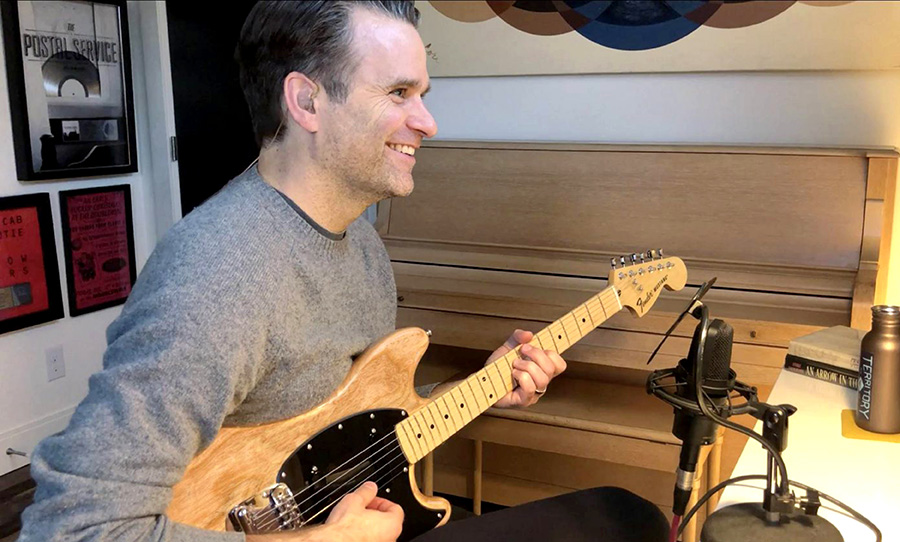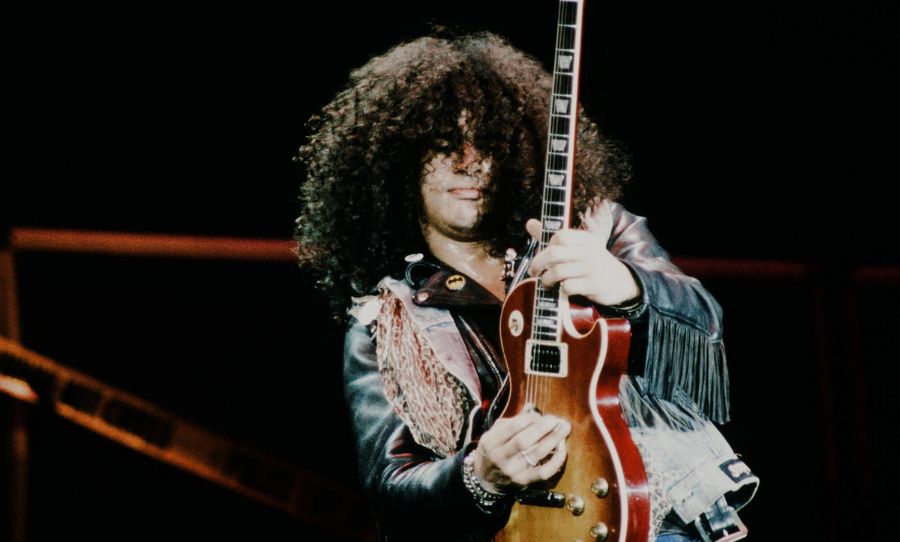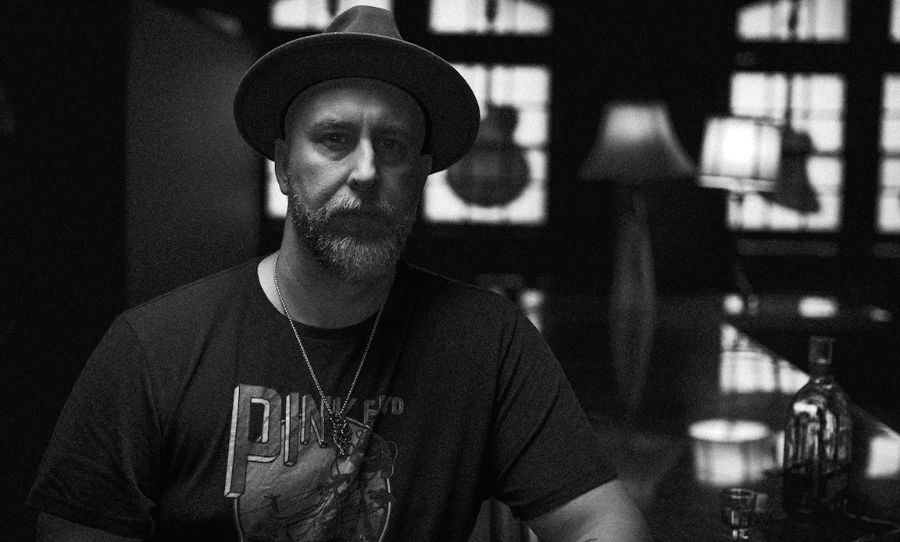We talk with Ben Gibbard, frontman of Death Cab for Cutie and The Postal Service, about Seattle in the ’90s, getting a real job, and “the ultimate old man trick” to skipping the backstage after your friend’s show.
Ben Gibbard is a powerhouse of the indie scene. He’s fronted a number of prolific albums as Death Cab for Cutie, and alongside Jimmy Tamberello in The Postal Service, helped set indie-tronica on the trajectory it’s been running with to this day.
Thus, it’s not very surprising that on March 2nd, Fender released a Signature Mustang with his name on it. It’s a stripped-back version of the original guitar, with no whammy bar, a lightweight chambered ash body, and a straightforward electronics package (with volume and tone knobs, and a 3-way pickup switch).
In Ben’s own words, it’s a “pick up and play” guitar. Alongside its release, we were able to join the man himself over Zoom to have a chat about the last year, the way the Seattle music scene impacted his life growing up, and having Mark Kozelek write music about him.

HAPPY: So whereabouts are you at right now? You’re in the States?
BEN: Yeah, I’m at home right now, I’m in Seattle where we’ve been locked down for exactly one year.
HAPPY: Wow. That’s some perseverance. You’re originally from Seattle right?
BEN: Yeah, I’m originally from a town called Bremerton, like across the water from Seattle. Spent some time in DC because my dad was military, but I was born in Washington and I spent all my formative years in that area. So yeah, for all intents and purposes.
HAPPY: It kind of shows, because your music is very full of the tonality and aesthetic that comes out of that part of the world. Death Cab especially has that really characteristic Pacific North West sound – the really pretty, emotional, and nostalgic vibe. How do you think that your location and surroundings have a hand in your writing process?
BEN: Well the North West is kind of an interesting place to be from in the sense that, whilst we’re now more connected than ever to everyone around the world, growing up here, it always felt like being from a forgotten corner of the country. We’re always taught this Anglo-centric view of the world, that the West Coast of America was the final frontier, and whether or not I believe in that, you can feel a psychological component of it present here to this day.
And especially growing up here, you really recognise the remoteness. You can be in Seattle, and you can go a half hour in any direction and be in the mountains, or somewhere incredibly rural. So even though there are these urban centres in the North West – Seattle, Portland, Olympia – you’re really pretty isolated. You have to drive for hours in any direction to hit another proper city.
HAPPY: But even though it’s so remote, it’s still a part of the world with a very rich musical history. I mean it was where grunge and everything started, at the start of the ’90s. Did you get to see much of that movement, or the fallout of that movement while you were around the scene?
BEN: Well I was too young to initially participate in it, but I had just moved back to Bremerton when I was maybe 14 or 15, and was just getting into my own music when Nevermind came out. I was mostly into punk rock and underground music when we arrived back in the North West, and the world’s eyes were on Seattle. Especially as a fan, it was a pretty electric environment.
To this day, I still love Nirvana, Soundgarden, Pearl Jam, and Alice in Chains, but it was mainly the bands I grew up seeing, especially at the OK Hotel, that changed my life. Getting into music in that period, especially after everything in the ’80s where you’d turn on MTV and see stardom through the eyes of bad hair metal and rock and roll, it was an eye-opener to see the guys from Treepeople setting up their own gear, selling their own merch, and talking to you and being nice to you.
Like, Doug (Martsch) eventually played bass for Built to Spill, but it felt crazy being able to initially see those artists in that authentic setting – especially in those formative years. It made me feel like I had really found my tribe. It was like, “this is really what I want to do”. I don’t want to be a rockstar, I just want to do this. It’s so cool, you can live your life and be in a band, and you can put out records and tour, and maybe you’ll have to get a real job at some point… but regardless, it’s what I want to do.
HAPPY: It’s funny how that’s always looming in the background: “maybe I might have to get a real job”.
BEN: Man! I’m almost 45 years old, and I’m still waiting to get a real job, I don’t think that it ever leaves you. I mean when we were starting out, we didn’t have any illusions. There wasn’t anyone to look to that had achieved even a fraction of the success that we’ve had in our career. I don’t say that to be self-aggrandising, but the bands that we grew up loving sold 50 or 20,000 records, and they played for 300 to 400 people in town.
You could extrapolate that they were making enough money on the road that they’d come home not starving, but they were probably coming home to some kind of job to help out with that. So from the beginning, that was the goal; not to get super big, but be in a band that you could tour with and make enough money to not starve. And then eventually pay your way through grad school or something like that.
HAPPY: Well it must’ve been crazy when you guys eventually blew up, and you’re suddenly touring around the world. But what happens when touring is taken off the cards? How was it for the past year getting locked inside? I feel like there are several other artists who have found themselves in a slump, with the past year being viewed as a massive wall to jump over in unsticking their creative process.
BEN: Well it was two-fold. Initially, there was all that chaos and fear about what this thing was – it’s got you so spooked that you’re like, sanitising your cereal box. And then on top of this, when we went into lockdown in March, a lot of booking agents were just saying, “we’ll be fine, we’ll just move those shows you have next week to September”, which was very confusing. We didn’t know how long it was going to last, we didn’t know how serious it was, how deadly it was – we didn’t even really know how you got infected at the start there. So amidst all this confusion, I was really struggling to get anything done because I was anxious all the time.
But then I started doing the live streams, and that was really helpful because it gave me a sense of focus and purpose for the days I was doing them. In fact, after a couple months of this, I settled into a really good cycle of production where I wrote a ton of songs. I collaborated with some people, wrote some music for a theatre project with some friends, and after I came to the realisation that, y’know, we weren’t going to die at the grocery store. I was able to anticipate just waiting it out. It was after we realised that, that it clicked.
HAPPY: Did having a new guitar help with this? You produced your own custom Mustang with Fender, and I can only imagine having something so catered to you would’ve helped you writing over this period.
BEN: It definitely did. Y’know, I find myself doing this thing where I gravitate towards a particular instrument and get fixated on it, and then it becomes my main writing tool. For a while, it was an old Martin acoustic the guys gave me for my birthday three or four years ago, like a parlour guitar that I’d be playing all the time. But once I got the actual final version of the Fender Mustang, with all of the R&D and everything that’s gone into it to make it exactly as I want it, it just became this thing that I’m just playing all the time.
I normally tend to write on acoustic, or at least start there, but I took to the Mustang most of the other time. It’s pretty special because whilst all of my other guitars are technically mine because I own them, this one literally has my name on it. It’s a really cool level of ownership that I feel towards it that I don’t particularly feel towards the other guitars.
HAPPY: How do you feel about all of the modifications on it? Does it make the guitar feel even more like your own?
BEN: Well I’ve been playing Mustangs for about nine years, and I’ve made so many modifications to them that when Fender approached me about doing a signature, I was curious as to how much pushback I was gonna get. I’d made so many modifications to the guitar that while it’s still a Mustang – it’s missing the polarity switches and tone knobs and whammy bar – it’s so stripped back that I was curious if they’d go for it.
But the reason I took all the things off is because they get in my way when I play live, hindering me from being able to play and perform in the way that I want. And so this model is a guitar where you can only get out what you put in – this kind of revelatory thing where nothing can go wrong with it. And you’re not fiddling with switches and knobs and everything, you pick up and play.
HAPPY: It seems like you’re combining the acoustic style that you’ve become so used to using in your writing and applying it to a legendary guitar model.
BEN: For sure.
HAPPY: Now when you’re writing, I feel like it’s not unfair to assume that there have been some particular characters that you’ve written about at the centre of your songs, but I’m curious as to how it felt to have Mark Kozelek write a song about you as the closer to his 2014 Sun Kil Moon project Benji. How did that come about?
BEN: Haha! Well, I’ve known Mark for a number of years – maybe 20 years now – and one day I got an email from him saying “hey, what’s your address, I wanna send you my new record.” I replied, and said that I’d love to hear what he was working on, because he was on this incredible run of records where his writing was just moving through this very interesting place. Very different to his Red House Painters stuff.
HAPPY: He kind of took up this weirdly mundane, but intriguing poetic persona.
BEN: For sure! And so this record shows up, and I’m playing it at my place and it gets to that last song, and I’m just like “wow he did not tell me that was on the record”. There was no “hey man, you’re on this record, I wrote a song about that Postal Service show I went to”, it was just a very Mark thing to do. It was also really cool to have another story from that day, because whilst it was such a triumphant show for us, playing the Greek, I can totally understand all the things he spoke about. Like yeah, getting into the Greek Theatre is the worst, and you’d definitely feel out of place if you weren’t a 25 or 30-year-old fan.
HAPPY: How’d it feel to hear his perspective on the show? He mostly speaks about how his feet hurt and skipping the backstage to head home – did you feel like you had to apologise for any of that stuff?
BEN: Hell no! Maybe when you’re younger and you’re in town, you invite some friends to the show and there’s an implication that we’re going to hang out afterward, go to a bar, and have a night of it – but when you’ve been doing this as long as Mark or I have, it’s totally fine if you just don’t do that. At that point, I was in my late 30s, and he was in his late 40s, and y’know, people have lives. Or even have kids. So it’s like look man, you came to the show, that was cool. If you couldn’t make the show that’d be fine too.
HAPPY: So do you have any advice on skipping the backstage if a mate invites you to their gig?
BEN: Well my buddy Jay Ferrar, when we were making a record together, he told me the ultimate trick if you’re feeling like an old man but still want to see your friends on tour — and I use this all the time: go down to soundcheck. Watch them play some songs, hang out, maybe get some dinner, and you get the social experience you wanted with your friends, but you’re not waiting around until one in the morning on a Wednesday for them to get off stage. I know how old that makes me sound, but I’ve spent so many years in so many late-night bars at this point, I really just want to see my friends and have some quality time. After the show is sometimes just not where it’s at, and so I’d rather just get lunch or go get coffee. That’s what you really want.
HAPPY: What a fantastic piece of advice. Well thanks for talking to us Ben, we really appreciate your time.
BEN: No stress man! Hopefully I can come back down there soon. Or anywhere for that matter. I’d love to leave my house.
The Ben Gibbard Signature Mustang is available on the Fender website here, and we’re crossing fingers that the rumours of a 2021 Death Cab release come true.



